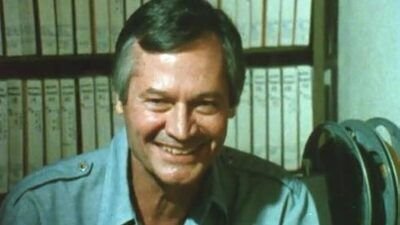By the time the Seventies came around, Corman had begun to tire of directing and after shooting “Von Richthofen and Brown” in 1970, he founded New World Studios, an independent production and distribution outfit. At first, the output was the same kind of exploitation fare that he had succeeded with in the past, including strings of biker films, women-in-prison films and sagas involving nubile nurses, teachers and the like. At the same time he was putting out the likes of “Candy Stripe Nurses,” “Women in Cages” and “Cockfighter,” he took advantage of the declining interest among the major studios in distributing foreign-made art house films by picking up the rights to such works as Ingmar Bergman’s “Cries and Whispers,” Federico Fellini’s “Amarcord,” Francois Truffaut’s “The Story of Adele H” and Akira Kurosawa’s “Dersu Uzala” and then marketing them as aggressively as his usual product, even reportedly putting some of them in drive-ins. During this time, he also produced “Caged Heat,” the 1973 debut from Jonathan Demme and “Boxcar Bertha,” the 1972 second feature from Martin Scorsese. (Reportedly, he also offered to finance what would become Scorsese’s third film, “Mean Streets,” on the condition that he rewrite it as a blaxploitation film.)
A number of the films he produced during this time would go on to become cult favorites—the sci-fi satire “Death Race 2000,” the sexy gangster epic “The Lady in Red” and “Battle Beyond the Stars,” to name a few—but the one that best captures the spirit of New World was “Hollywood Boulevard,” a wild 1976 film that he allowed two guys from his trailer department, Joe Dante and Allan Arkush, to make, provided that it could be the cheapest production in the studio’s history. Using extensive stock footage from previous films from the studio as a starting point, the two conjured up a frequently hilarious goof about an ambitious young starlet (Candice Rialson) who begins working at the threadbare Miracle Pictures (“If it’s a good picture, it’s a Miracle”) just as her fellow actresses are being mysteriously bumped off while working on a slate of Grade-Z projects. Shot in ten days, this was a “Hellzapoppin”-style barrage of loopy gags—including plenty of inside jokes for film buffs to catch—and cheerful sleaze and while some of the elements on display might not play so well today (including a couple of scenes in which sexual assault is played for laughs), it still serves as an affectionate homage to the studio that gave so many their starts. Although not a big hit either, Corman gave both Dante and Arkush chances to direct their own solo films and they responded, respectively, with two of New World’s biggest hits, “Piranha” and “Rock n Roll High School.”
Recognizing that the major studios were now beginning to focus on making the kind of fare that he specialized in, albeit on a scale he could never approximate, Corman sold New World in 1983 and formed a new company a couple of years later called Concorde. There, he continued to crank out numerous B movies, though many of these films would only receive token theatrical releases before hitting the more lucrative cable and home video markets. A number of these projects would be sequels or remakes of previous projects, such as a 1988 remake of “Not of This Earth” featuring the then-notorious Traci Lords in her first non-pornographic role or the Angie Dickinson vehicle “Big Bad Mama II.” To ride the coattails of the then-upcoming “Jurassic Park,” he produced the somewhat tackier “Carnosaur” (1993) with Diane Ladd, the mother of “JP” star Laura Dern, and scored a hit. Most infamously, he produced a micro-budget adaptation of “The Fantastic Four” (1994), that was later bought out and shelved by Marvel, though copies of it would eventually get out. He even made one final trip to the director’s chair in 1990 with “Frankenstein Unbound,” an offbeat adaptation of the 1973 Brian Aldiss novel that offered a futuristic take on the Mary Shelley story that, despite some good reviews, was barely released in theaters.


















